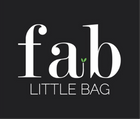
Do's & Don'ts: How To Celebrate Your Daughter's First Period
Written by Isobel Davidson
Whether it was long-awaited or unexpectedly early a girl’s first period is usually a memorable moment. So how should parents react? Your daughter’s period typically arrives from age nine until 14. Hopefully, by the time, your daughter’s first period arrives you’ve had open discussions together and this isn’t a completely alien topic. Even with plenty of earlier conversations handling the first period can be tricky for anyone, so supportive parents make all the difference.
What Should I Expect From My Daughter’s First Period?
What to expect will of course depend on the daughter, their age, and your relationship. For some, this might not be a celebratory moment. Dealing with period symptoms such as mood changes, cramps or general discomfort could encourage more frustration than joy for some people.

Be ready for a whole range of emotional responses. Some take the arrival of their menstrual cycle in their stride. But it can also be a stressful or overwhelming time and you could be a valuable support, emotionally or practically. Yet as any parent will know, it’s easy to say the wrong thing at a sensitive time. So, how to get it right?
3 Do’s For Helping Your Daughter With Her First Period
1. DO: Provide The Right Products
Before your daughter’s period even arrives it’s a good idea to have a starter pack ready with a range of pads, tampons, and a few Fab Little Bags to dispose of them easily and discreetly.. Making sure she has these items with her at home and school will prevent any panic later. Picking out items together is a great way to help her navigate the vast array of options and find the products that suit her. There are also period underwear to consider which may help in the early stages…Discuss the various pros and cons of different products so that she’s well-informed.
2. DO: Be Aware of Menstrual Symptoms
Everyone’s cycle is different so your daughter’s symptoms might be minimal or challenging so check in to see what support she needs. Be prepared with hot water bottles, chocolate, and hugs. Talk through the way hormones might be influencing their mood and maybe be prepared for a slight test of your patience… Your daughter might be suffering from a whole range of symptoms including cramps, mood swings, tiredness, and skin breakouts and these can be especially intense or distressing whilst their hormones are still stabilising.
3. DO: Be Prepared For Questions
It’s one thing to talk it through in theory beforehand, once she’s actually going through it your daughter will probably have new questions. Depending on how well she remembers previous conversations you might need to cover some information again. It’s important they know they can ask any questions they have, there’s nothing too “embarrassing” to share. You have the chance to make sure they’re armed with accurate information.
3 Don’ts For Helping Your Daughter
1. DON’T: Make It a Big Deal
Of course, some daughters may love the excuse to celebrate and see this as a marker of their adulthood but don’t assume this. For many the biological changes, they're going through are enough to cope with without it implicating their whole identity. Your child may be confident and excited about their first period, but most girls of this age are more private about it and may not want to share it with the world.
2. DON’T: Be all Doom and Gloom!
Now is not the time for fear-mongering. It’s important to talk openly so you can bust any myths or misconceptions your daughter might have. Everyone experiences periods differently, and whilst they are painful and difficult for many at some point, it is important to provide a balance of information This will help them to know when to seek GP help and what is acceptable in terms of pain… a hugely important message is that their period is not a source of shame.
3. DON’T: Ignore Their Privacy
Whilst it's nothing to be ashamed of, your daughter might understandably want to preserve their privacy. So hold back on the proud Facebook post, at least until you’ve established their personal boundaries. You might have set a precedent of open discussions at the dinner table but it’s up to your daughter who she shares this experience with, including what she discusses with you.
Ultimately, there is no one-size-fits-all way to handle your daughter’s first period. It’s crucial to listen to your daughter and understand her emotional and practical needs. You might not get it all right but at least she’ll know you’re there for her.
